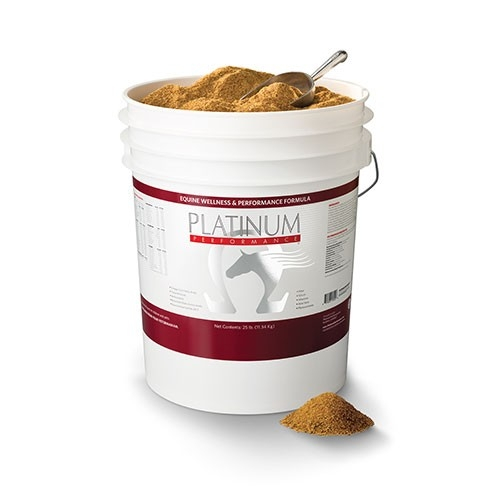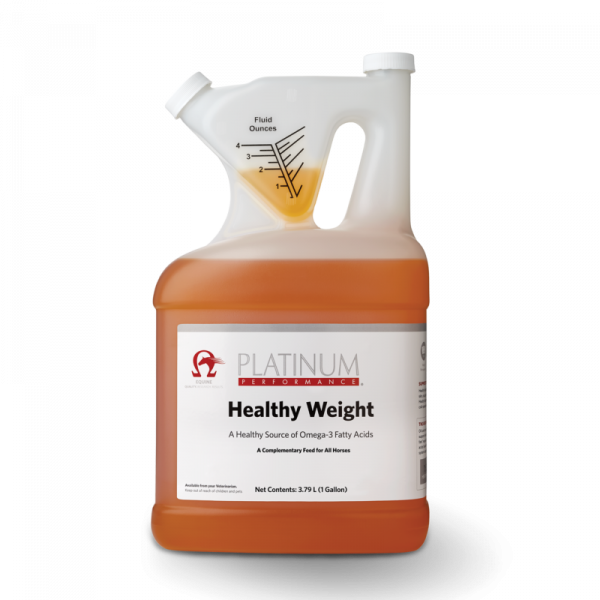
While nutrition has historically been considered the appropriate amount of nutrients needed for energy, to maintain weight and promote growth, the majority of dietary effects may actually occur in ways that are, in fact, not always obvious to the naked eye. This is until there is evidence of a health concern. But what is consumed through the daily diet really begins by influencing at the level of the cell and has a profound effect on each and every living animal. What the horse consumes has the ability to benefit so many areas of health, including immunity, athletic performance, reproduction, metabolism, longevity and more. But what the horse takes in daily also has the ability to interfere or take away from the health and well-being of the animal. A specific fat, the omega-3 fatty acid, has a significant role in equine nutrition due to its multiple applications on numerous health areas. The use of supplementary omega-3 fats in equine diets has given pause to many when it comes to feeding the horse, preempting justified questions, such as: What are they? Are they necessary? How do they benefit the horse?
The Omega-3 Effect
Fundamental needs for omega-3 fats are met with consistent consumption of pasture. However, when fed in addition to basic needs, there is potential for widespread biological influence in many different health realms. This is due to several factors. The most important and most well-researched is omega-3 fatty acids. They help maintain normal levels of inflammation in the body. This is the main reason that these specialized fats are able to affect so many different areas of the body. For example, by supporting a healthy inflammatory response, omega-3 fatty acids provide nutritional support for horses with sensitive skin or seasonal allergies. It can seem complicated in its simplicity but feeding omega-3 fats can truly have a multi-systematic impact.
10 Health areas directly impacted from Omega-3 fatty acid supplementation
1. Wellness
It has been extensively demonstrated for various animal species that omega-3 fats are required for cell health and function. Omega-3 fatty acids provide support for health as they incorporate into every cell membrane of the horse's body. They improve cell membrane integrity and function, and provide a ripple effect of benefits internally. Omega-3 fatty acids work hand in hand with antioxidants. Fats are needed to absorb and process many of the fat-soluble antioxidants, and in turn, antioxidants offer biological protection in the prevention of oxidation and rancidity of fats. The natural equine diet has similar attributes relying on a foundation of omega-3 fats and antioxidative nutrients to promote wellness from within.
2. Skin and coat
Although the natural diet of the horse is relatively low in fat, a true lack of fat can be correlated to dry, brittle hair coats. Essential fatty acids are necessary for skin and coat health. A deficiency of omega-3 fats can lead to overly sensitive, itchy and inflamed skin. Shifting the ratio of essential fats more to what a horse would naturally be consuming in the wild may help to normalize inflammation in the skin and support skin health. The addition of dietary fat, such as flaxseed oil or a fatty acid supplement, can increase the amount of oil secreted by the skin’s sebaceous glands. This helps to add oiliness and sheen beneficial for dull hair coats. Not all oils are created equal. A healthy alternative to corn oil is to top-dress with cold-pressed flaxseed oil, an excellent source of omega-3 essential fatty acids.
3. Seasonal allergies
An allergy is an immune disorder characterized by hypersensitivity to specific substances called allergens that result in an excessive inflammatory response. Most commonly, allergic reactions affect the skin and respiratory airways in horses and generally develop in response to exposure to molds, spores, insect bites and certain proteins present in pasture grasses. There is a correlation between the ratio of omega-3 and omega-6 fats that horses consume and their ability to respond to an allergen. Diets that contain high concentrations of omega-6 fatty acids can exacerbate the inflammatory response. On the other hand, omega-3 fatty acids have been shown to maintain a healthy inflammatory response and provide support for seasonal skin allergies.
4. Immune health
Proper immune reactions are characterized by traditional inflammatory response. Omega-6 fatty acids and their resultant pro-inflammatory metabolites induce immunosuppressive reactions. Excessive, ongoing inflammation or repeated, acute inflammatory responses will hinder immune function. But Omega-3 fatty acids, on the contrary helps maintain healthy immune responses.
5. Joints and ligaments
A common cause of joint issues in horses is persistent inflammation. With elevated inflammation, uncontrolled free radical activity and dysregulation of local enzymes can result in the degradation of critical components of cartilage, synovial fluid and the synovial membrane of the joint. Omega-3 fatty acids support a normal, healthy inflammatory response in the body. In joints, omega-3 fatty acids can help maintain healthy cartilage and normal connective tissue.
6. Digestion and weight
The addition of healthy fats to the diet helps maintain normal inflammation in the intestine, which supports nutrient absorption. A feeding trial at the University of California, Davis, disproved the common misconception that feeding higher amounts of grain is the best or only way to add weight. In the trial, horses were fed a hay diet and administered a comprehensive omega-3 fatty acid supplement in place of feeds of the same caloric value and 88 percent of the horses gained weight in the study. Fats, even healthy ones, do contain higher calories. But the amount needed to provide the maximum benefits for omega-3 fats is a minimal caloric provision to the entire diet and can be done even to overweight horses to provide omega-3 fat benefits.
7. Hoof
Fats play a pivotal role in a healthy hoof because they retain the natural moisture and pliability of the hoof wall, resist the absorption of water from the environment and prevent bacteria and fungi from entering the hoof horn. Hoof tissue has 3 to 6 percent total fat, which works to bind cells together and aids in repelling water. Fatty acids are important nutrients for healthy hooves as they help in connecting hoof horn cells and sustain a permeability barrier. Deficiency of fat can be seen in skin and hoof problems. A deficiency in essential fats may manifest as skin and hoof issues. This is why horses with dry, brittle hooves — unresponsive to other vitamin or mineral-specific supplements — often show improvement when supplemented with omega-3 fatty acids.
8. Reproduction
The quality of a stallion's semen plays a major role in fertility and depends on dietary intake and incorporation of omega-3 fatty acids, particularly DHA, which is absorbed into the plasma membrane of the semen. This is because semen consists a significant amount of fatty acids. Increasing dietary omega-3 fatty acids has been shown to support reproduction function in stallions.
Improved reproductive parameters have also been identified in mares. Omega-3 fatty acids maintain normal inflammation in the uterus and supplementation helps maintain normal uterine health. Supplementation has been shown to support colostrum quality and maintain passive transfer of antibodies to foals.
9. Muscle
While the ideal diet for the equine athlete is high-quality forage, many horses are unable to obtain adequate energy from hay or pasture alone and are often supplemented with calorie-dense grains and oils. When compared to a high grain diet, a high fat diet that includes omega-3 fatty acids may support energy production on a cellular level. Other benefits of higher-fat diets include supporting normal lactate production during exercise and promoting normal glucose metabolism, which could enhance exercise tolerance and support normal muscle recovery after exercise.
10. Metabolic
Omega-3 fatty acids have been shown to help maintain blood glucose levels within normal ranges by supporting metabolism and glucose uptake by cells. To determine the benefits of a comprehensive omega-3 supplement with the addition of magnesium and chromium on metabolic parameters associated with insulin resistance or equine metabolic syndrome, researchers at Colorado State University measured insulin and glucose responses of horses. Following 6 to 8 months of supplementation, borderline insulin-resistant horses had a 19 to 20 percent decrease in fasting cortisol (p < 0.05) and insulin (p = 0.052), as reported from the study. This correlated to a significant 15 percent improvement in the average RISQI score (an index of insulin resistance), reclassifying these horses from borderline insulin resistant to normal in this study.
As demonstrated, omega-3 fatty acids can significantly impact multiple physiological systems.







